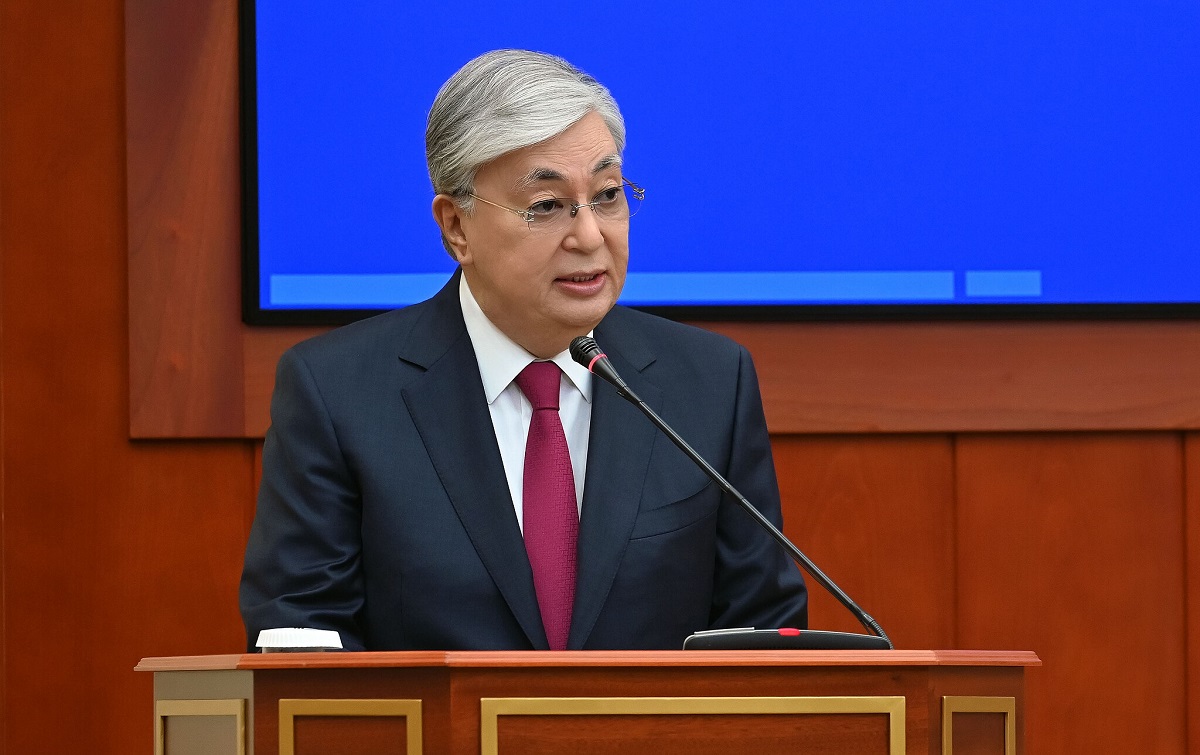Astana between reforms and authoritarianism
After his re-election as president and a few tweaks to the constitution and the system of power, Tokaev insists less and less on democratic reforms in the country, urging a focus on the economy. Going so far as to deny the existence of political prisoners despite the closed-door trials of personalities accused of 'extremism'.
Astana (AsiaNews) - The speeches of the president of Kazakhstan, Kasym-Žomart Tokaev, in recent months have insisted less and less on the country's democratic reforms, and instead focus on economic developments.
The political scientist Šalkar Nurseit intervenes on Radio Azattyk, who from the analysis of these public declarations deduces a return to the classic authoritarianism of the first thirty years of Tokaev's predecessor, the Elbasy ("father of the country") Nursultan Nazarbaev, therefore from the de-Elbasyzation today we are moving on to the "new Elbasy" regime.
After his re-election as president and some adjustments to the constitution and the system of power, Tokaev tried to dismiss the issue by stating that "we have carried out the necessary reforms, now is the time for economic growth", especially starting from the message to parliament in September 2023.
This is in fact Nazarbaev's typical slogan: “first the economy, then politics”. According to his successor, today Kazakhstan "is a democratic country", even if it seems rather a not very successful imitation of democracy.
According to Nurseit, "nothing prevents the president from introducing all the constitutional changes that suit him, or that simply come into his head", and several have been introduced in the last two years.
The reforms in fact did not limit the prerogatives of the president at all levels, and the demonstration was the choice of the new prime minister Alikhan Smailov, which in theory should have been a prerogative of the parliament, but in an interview with the newspaper Egemen Qazaqstan he Tokaev himself candidly admitted that it was he who proposed it to the majority Amanat party.
In 2019, when Nazarbaev handed over the presidential seat to him, Tokaev pronounced the formula of "strong president - incisive parliament - executive government", and it seems that the first of the three conditions was especially respected.
Even if in the last two years the presidential rhetoric insists on de-Nazarbaevization, in fact Tokaev has retained all the prerogatives of his predecessor, as the expert points out, and as is evident in the recent repression of social activists of various groups, and also of independent journalists.
Before becoming president, when he was president of the senate of the capital then called Nur-Sultan and then returned to Astana, Tokaev expressed himself much more openly, using social channels extensively. Today in the new bill "On the mass media" many limitations are foreseen on the freedom of expression of the local and international press, by direct will of the president, who according to Nurseit "in 2023 did not pay any attention to the protection of rights and freedoms ”.
The political scientist goes so far as to define current Kazakhstan as "a police state", with excesses of power of the police and security structures. In January Tokaev declared that “there are no political prisoners in Kazakhstan, as there are no rules in the legislation providing for the persecution of citizens for their political opinions.”
So according to this logic, if there is no law that provides for censorship or repression, it means that these problems do not exist.
Activist Marat Zhylanbaev, leader of the unregistered party Alga, Kazakhstan! was recently sentenced to seven years' imprisonment in a closed court session on charges of extremism, as also happened to other public figures such as the journalist Karim Mukhammedkarim and others, for example the ex-president of the security services Karim Masimov, "scapegoat" for the January 2022 riots, always sentenced behind closed doors.
As Nurseit points out, "the president talks less and less about human rights, democracy and liberal reforms", and despite his formal distancing from Moscow's politics and wars, "in Tokaev's foreign policy the interests of the Russia".
07/02/2019 17:28







.png)










